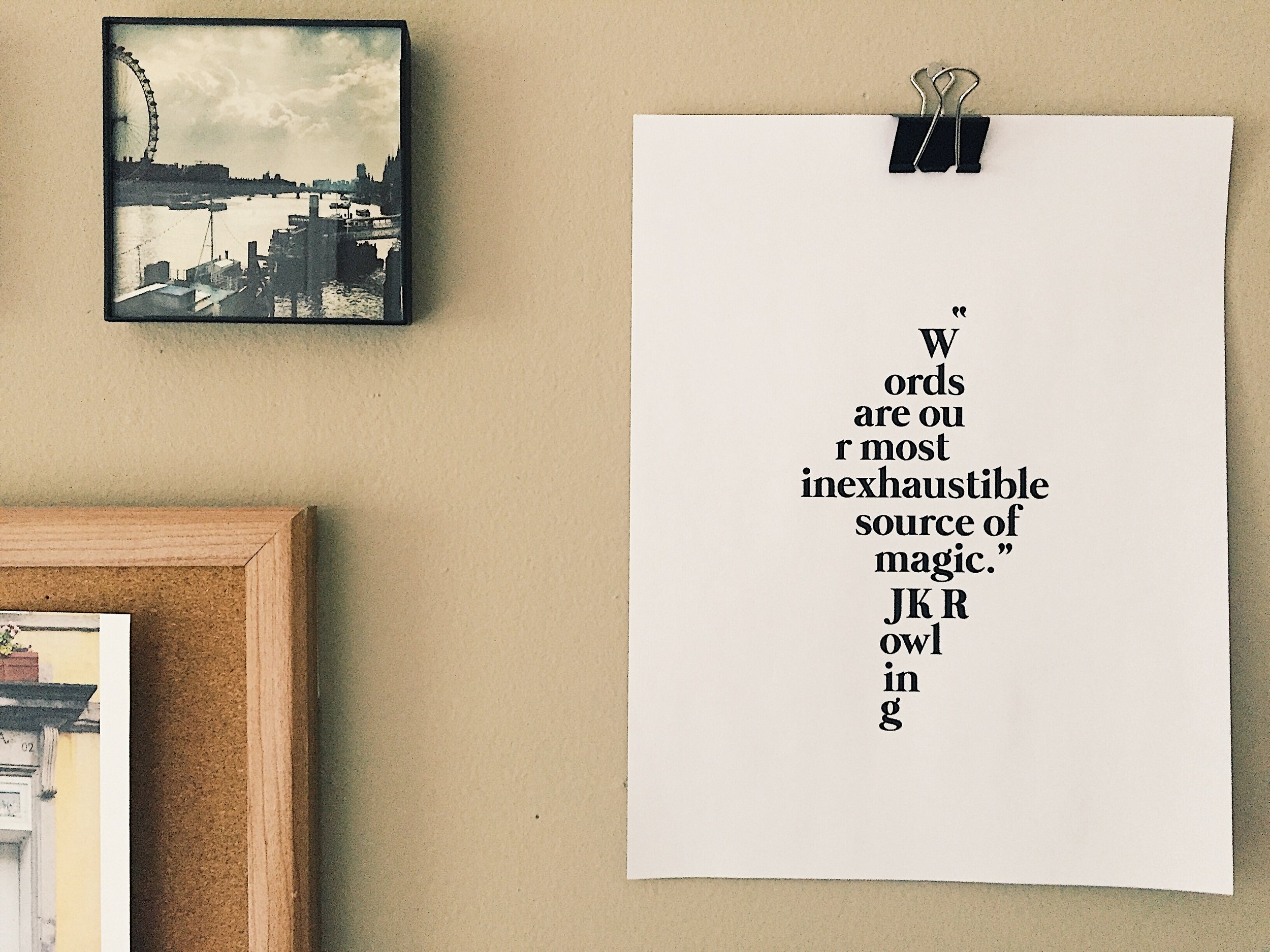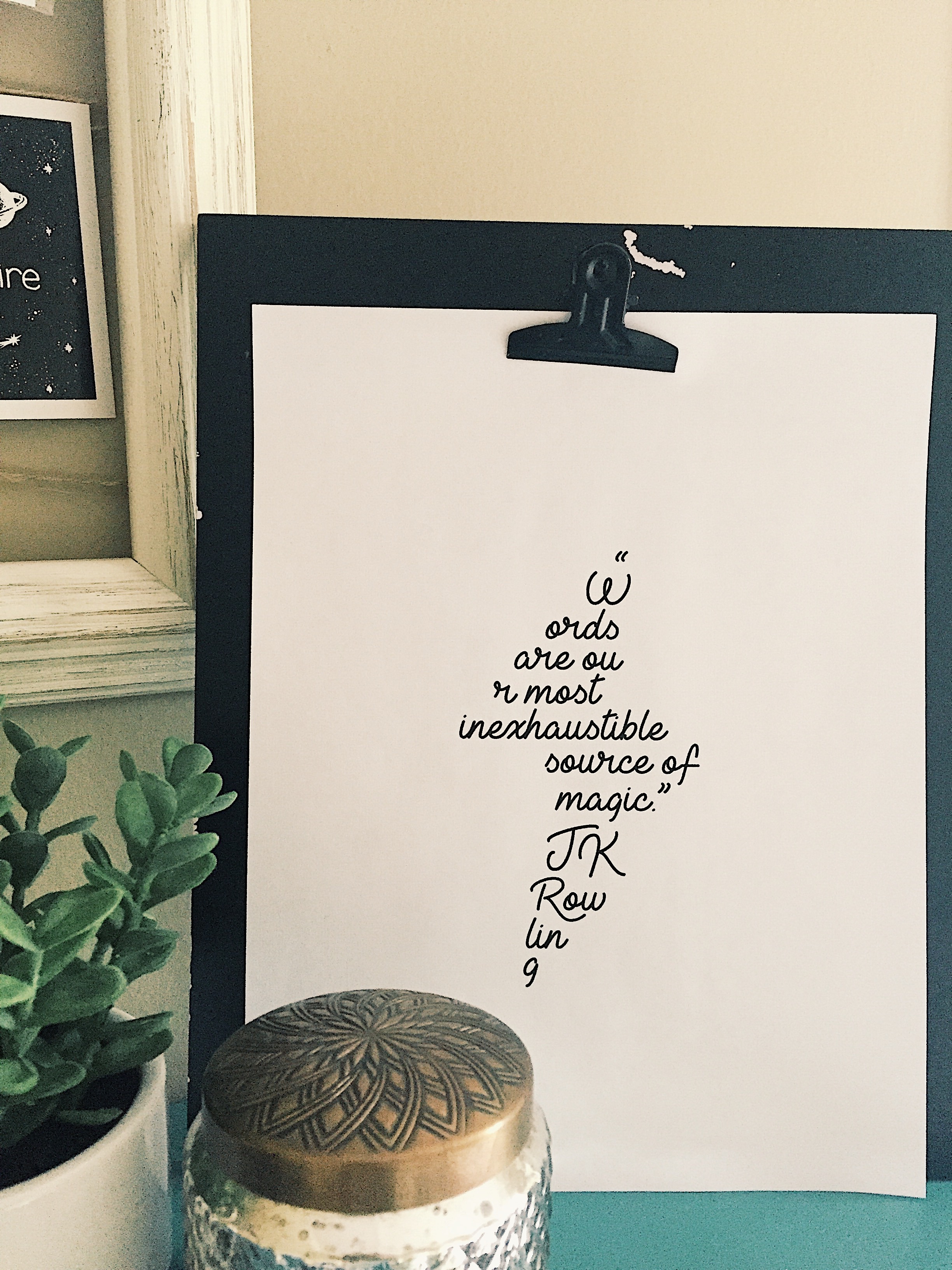Words of Comfort
I was twelve years old when I knew I wanted to study English. I sat in class lapping up the words in my books and praising my teachers who found even more wisdom on the same pages I had just read. After graduating with a major in English Literature, I am still hungrily flipping through pages for guidance and comfort.
In my post-college world, I have gone several months without reading a full book, but I am always transfixed upon picking another one up again. There is something so comforting in reading something written by someone I’ve never met, and to find my own revelations in their words. Humans are always seeking affirmation of one’s thoughts and beliefs. Finding these same thoughts echoed by another person is one of the best ways to do so. I often encounter beautiful words of an author articulating something I had struggled to say in soothing syntax and impeccable phrasing. My soul is comforted by this seemingly oxymoronic solitary connection.
I can turn to Ernest Hemingway on those mornings when I simply cannot get myself out of bed and to work: “I had the feeling as in a nightmare of it all being something repeated, something I had been through and that now I must go through again.” (The Sun Also Rises)
Or haughtily mutter the words of Jane Austen as I scroll through dozens of Instagram selfies if I’m in a sassy mood: “Vanity working on a weak head produces every sort of mischief.” (Emma)
In desperate times, searching for some predictability, I can ask Michael Chabon’s question: “I wanted to ask him in there was anything in my life that was real and coherent and likely to remain the same way tomorrow.” (Wonder Boys)
I find my positivity again through the words of people like Henry James who articulates my excitement of future happy hours with friends or a second interview upcoming: “She was thinking only that ‘some other time’ had a delightful sound; it seemed to spread itself over the future.” (Washington Square)
Then there is Annie Lamott who proclaims, “Perfectionism is based on the obsessive belief that if you run carefully enough, hitting each stepping-stone just right, you won’t have to die. The truth is that you will die anyway and that a lot of people who aren’t even looking at their feet are going to do a whole lot better than you, and have a lot more fun while they’re doing it.” (Bird by Bird).
Now that’s advice I can run with! When Annie Dillard tells me not to look down, you better believe my head is craning upwards. Which brings me to the book I chose to read to my students for read aloud this quarter: The Last of the Really Great Whangdoodles by the incredible Julie Andrews. Within the first chapter, one of Andrews’ central characters makes the astute observation, “Have you noticed how nobody ever looks up? [...] Nobody looks at chimneys, or trees against the sky, or the tops of buildings. Everybody just looks down at the pavement or their shoes. The whole world could pass them by and most people wouldn’t notice.”
Now over forty years after this book’s publication, this truth still sadly rings true. We are not only spending our lives staring at the pavement and shoes, but on our phones and TV screens. Books remind us to look up!
We owe it to ourselves to turn to authors in the times when we need the most assurance! Hemingway recognizes that we post-grads encounter that moment where we need change: “If I can’t have long hair or any fun, I can have a cat.” (Cat in the Rain)
How about treating yourself to some Yann Martel who advises, “To choose doubt as a philosophy of life is akin to choosing immobility as a means of transportation.” (Life of Pi)
Then pick yourself up with Toni Morrison proclaiming, “You are your best thing.” (Beloved)
Through my studying and teaching, I am reminded about the importance of words. We study words and better ways to use words so we can become better people. When we build our lexicon, we are better able to express and communicate. Words are our survival tools. Words are for formulating that speech in the shower that you wish you said to your friend the other day. Words are for practicing our retorts for tomorrow. Words are for empathizing and spreading kindness. The best part is that we have so many words at our disposal in our minds and in our books.
Finding solace in the pages of a book is one of the best therapies I have practiced. I am constantly finding new nuggets of wisdom, just when I need them most. Books have always been a friend to me, and I hope that others can remember the importance of reading outside of the classroom. Reading has equipped me to take on whatever my future may hold through patience and reflection.
So, in the words of Mary Shelley, “Beware; for I am fearless, and therefore powerful.” (Frankenstein)
FREE PRINT
Do you like free things? Us too. How about this free print of a dope Harry Potter quote in 3 font options? Enter your email below to receive your free Harry Potter print.















Hi friends,
Announcement (sounds so formal, doesn’t it?):
It's the end of an era.
I’ve decided that, after nearly 8 years of telling stories of navigating life, this season of Windrose is drawing to a close.